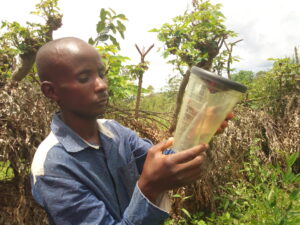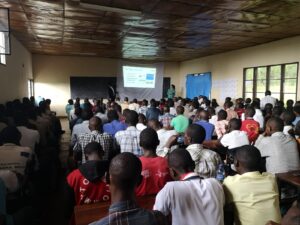Burundi: After the weather forecast… the seasonal forecast
Last month, our colleague Aliane Nahimana and partners from the GAP4All project (Good Agricultural Practices for All) visited farmers in Burundi.
The main objective of the visit was evaluating the new version of the seasonal forecast. After the successful weather forecast service, this seasonal forecast has been built as an answer to farmers who desire to make seasonal decisions for their farming activities. Indeed, empirical observations were used as a guidance for long term decision making in the past. However, farmers complain that the seasons do not follow the regular patterns anymore due to climate variability.
During its evaluation, farmers expressed their need of such forecast. They are eager to use it to optimize every single harvest. Based on the various valuable suggestions from the farmers and their experiences, the seasonal forecast is being improved and delivered soon for farmers to increase both their land’s productivity and the country’s food security.
Now was also the time to hear all experiences of farmers who used our rainmeters for over a year, so all full seasons. Aliane visited 2 provinces and farmers were glad to share their experience with the rainmeters, the weather forecast and the AgriCoach app in general. For instance, they now have an idea of what extreme precipitation looks like – not only in terms of the crops damages but in terms of daily millimeters of precipitation as well. This is quite a remarkable experience, knowing that some of them hadn’t even been able to learn reading and writing.
We had another great opportunity to share our knowledge with students from the University of Burundi at FABI (Facult´e d’Agronomie et de la Bio-Ingenierie). In fact, those students will be in charge of future decisions and innovation that will improve the farmers’ lives. Many were very interested both in the project’s expansion to other provinces of the country and in the contribution they could make as interns.
One of the challenges in meteorological forecast is building trust. Actually, an incorrect forecast can easily hinder people’s confidence and consequently, its use for decision making. Nevertheless, the satisfaction of the farmers encourages the delivery of the new seasonal forecast. This way, we contribute to optimize food production on the long term.



